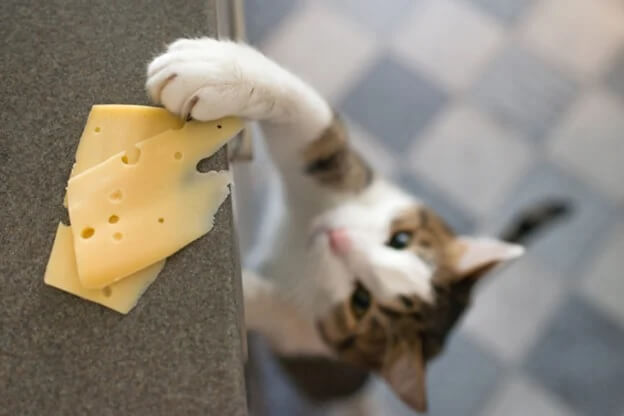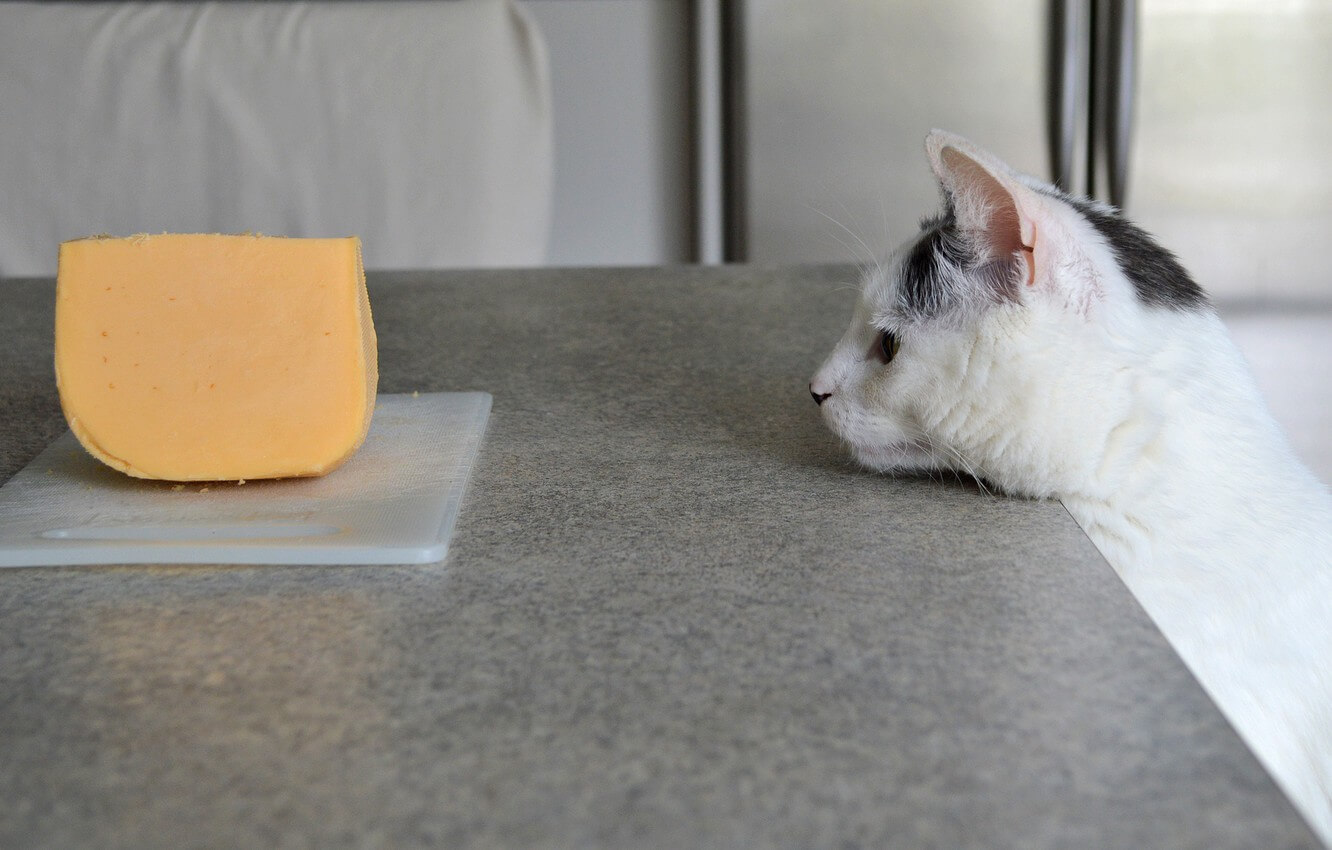As soon as you sit at the breakfast table and put a slice of cheese on the bread, the house tiger comes in and wants you to feed it. Many cats love the smell of cheese. But is it harmful or healthy for cats to eat cheese?
Can Cats Eat Cheese?
Cheese is unhealthy for cats. The main complaints are gastrointestinal problems and diarrhea.
Why Does a Cat Like to Eat Cheese?

Cheese has a strong odor of its own. That attracts the cat. For many house cats, it is quite normal to get a treat at the table. Often cheese is also included. Your fur nose likes to eat cheese because the ripened cheese, in particular, smells good and it has got used to it. In very small quantities, the cheese does no harm and is not toxic to cats, but it remains an unhealthy snack.
There is protein and fat in cheese. Both ingredients are important for cats, but they meet these needs through the meat. Meat contains enough protein and fat, and an additional diet with cheese can even be harmful. This also applies if she should drink milk.
How Harmful is Cheese to Cats?
Small amounts of cheese are not harmful. But if the cat nibbles frequently and a lot of cheese, it affects the gastrointestinal tract. The reason for this lies in the lactose.
Cats are lactose intolerant
The milk sugar (lactose) contained in milk puts a strain on the digestive system of cats. You are not able to break down this milk sugar. This leads to digestive disorders, which can also lead to severe diarrhea. Cheese is made from milk. The concentration of milk sugar is lower there, but lactose is still present. Because of this, cheese is not suitable for cats.
Young cheeses contain a lot of lactose; mature cheeses lose a lot of it during the ripening period. This means that hard cheeses such as Parmesan are low in lactose. The question of whether cats are allowed to eat cream cheese is answered by itself: Cream cheese is rich in lactose and therefore not at all suitable for cats’ nutrition. If you really want to give your cat cheese to eat, then please always use lactose-free products.
Salt and Phosphate Levels in Cheese are Also of Concern

It is well known that many cats struggle with kidney problems in old age. The consumption of salt worsens the symptoms. Many types of cheese contain salt, which puts a strain on the cat’s organism.
Another ingredient in cheese has a negative impact on the health of cats: phosphate. Scientific studies have shown that the course of the disease in cats with chronic kidney failure can be slowed down by greatly reducing the dose of phosphate. Hard cheese contains little harmful lactose, but a lot of unhealthy phosphates. If the cat suffers from kidney problems, the feeding of hard cheese is particularly critical because the disease will then progress more quickly.
Our Tip: Do Not Feed Cats Any Cheese
With regard to the ingredients in cheese, which are critical for cats, there is only one single tip that you should heed: Do not feed your cat with cheese and under no circumstances with chocolate, but use harmless treats.

